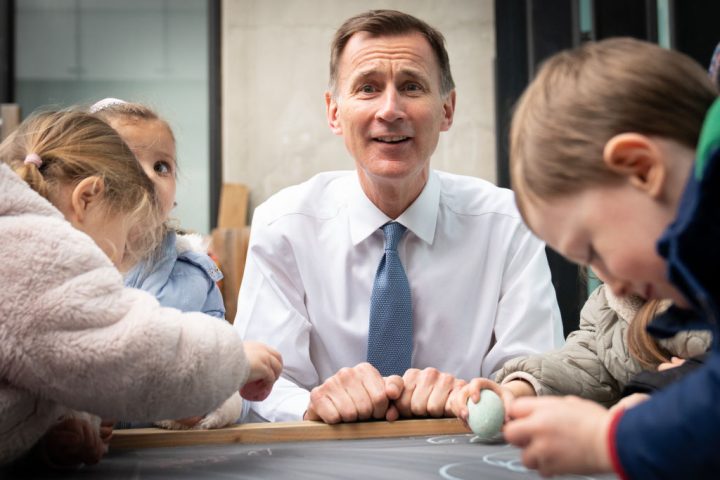People love free stuff. Why wouldn’t they? Free healthcare, free education, free childcare – what’s not to like?
Expanding free childcare hours doesn’t change the fact that a full-time nursery place costs around £15,000 a year
Of course, government provides nothing for free. When the economist Milton Friedman appropriated the adage ‘there’s no such thing as a free lunch’ for his 1975 text of the same name, he was describing in layman terms the concept of opportunity cost. For every choice made, there is another which cannot be.
When ‘our’ NHS absorbs nearly half of day-to-day public service spending, it is money that could have been deployed elsewhere. And when the Chancellor massively expands the ‘free’ childcare entitlement, he is reducing costs for parents, but limiting his ability to spend on defence or social care (or, indeed, cut taxes). All readers will understand this. How peculiar that our politicians don’t.
The government seems to have a muddled view of what it is attempting to achieve in childcare, and even less of a clue for how to measure it. It wants to boost female labour market participation so that job vacancies, a scourge on our post-Covid recovery, can be filled. It wants to improve educational attainment, particularly among more disadvantaged children. Perhaps policymakers are concerned about our declining fertility rate, and hope subsidies will reverse it. There are other reasons given – affordability, accessibility, favourable headlines, voter support. But it remains unclear just how successful these new policies will be.
Since the 1990s, successive governments have interfered in the childcare sector, pumping up demand (i.e. subsidies) and restricting supply (i.e. regulation) in the process. Layers of bureaucracy have been piled on childminders, forcing many out of the sector. It’s hard to see that a signing bonus, as announced yesterday, will do much to stem the flow. Strict regulations have been imposed on nurseries, the most damaging of which are the ratio requirements forcing them to employ more staff than they may need. Loosening these rules in the Budget was a welcome development, but it was a small step out of the childcare quagmire we find ourselves in. The Early Years Foundation Stage, the government’s attempt at forcing a national curriculum on 2 year olds, has raised costs further.
Expanding free childcare hours does not reduce the underlying costs because it doesn’t address those regulatory requirements (with the exception of the slight relaxing of ratios). It doesn’t change the fact that a full-time nursery place costs around £15,000 a year. It simply shifts the burden from parents to the taxpayer.
This has been going on for some time – and under Conservative administrations. 2010 saw the introduction of 15 free hours for all three and four year olds. In 2013, this was extended to include two year olds from disadvantaged families. Two years later, some families saw their entitlement doubled to 30 hours. Subsidies throw up anomalies, vocal vested interests will always demand more, and sure as day follows night Tory governments capitulate.
So it was this week, as Jeremy Hunt increased the allowance which, between now and September 2025, will reach 30 free hours per week for children over the age of nine months. The change will see taxpayers covering 80 per cent of all formal childcare in England, at a cost of around £8 billion per year – opening up a new strand of the welfare state.






Comments